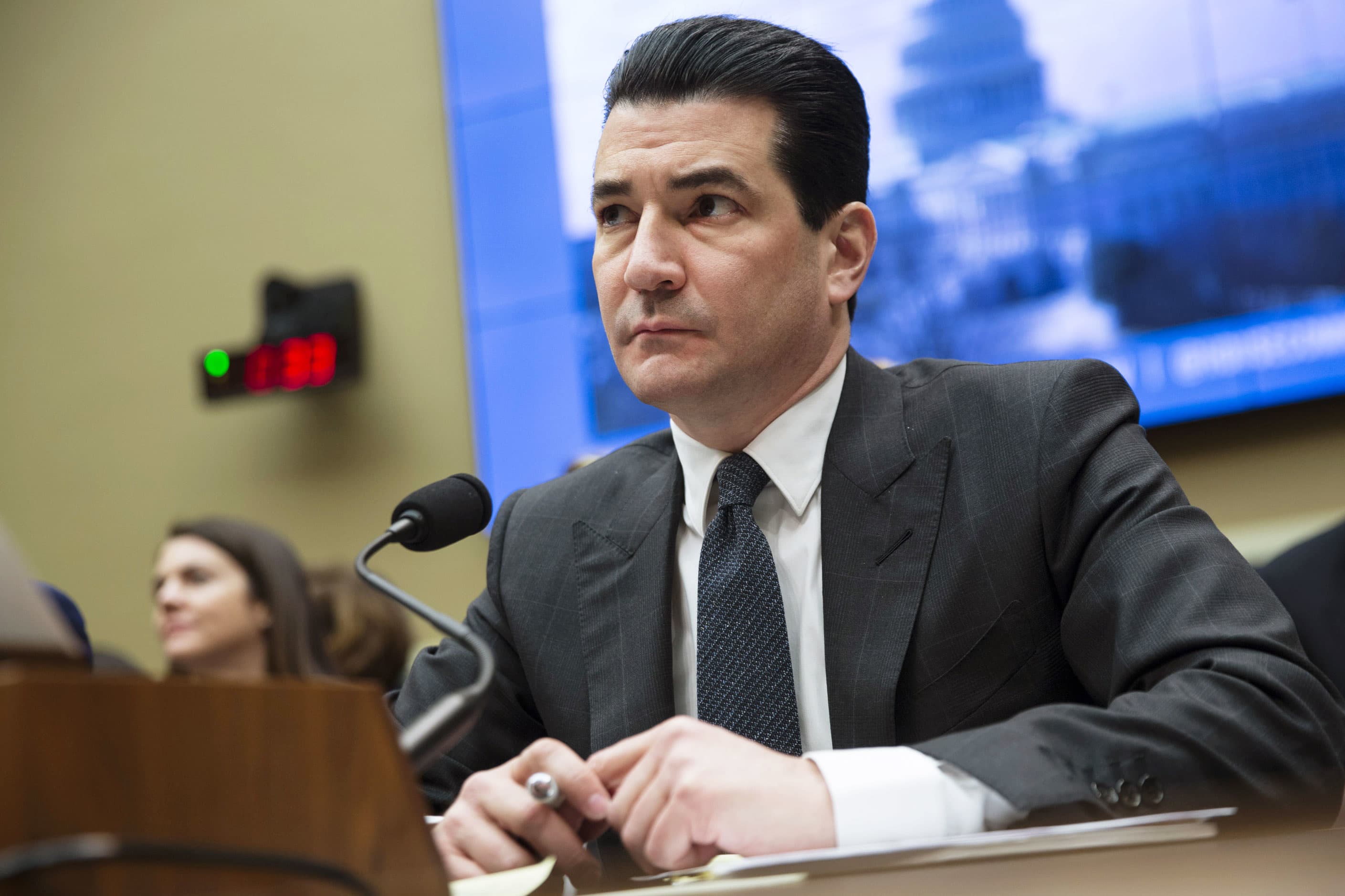The worst of the U.S. coronavirus outbreak will end by January either with a vaccine or because enough people in the country will have already been infected and have some immunity to it, former Food and Drug Administration Commissioner Dr. Scott Gottlieb told CNBC on Thursday.
The restrictions and guidance implemented to curb the spread of the virus will not last forever, he said, urging people to practice public health precautions until the U.S. can safely return to normalcy. He added that it’s fine to socialize, but within reason and people should consider keeping “a small social circle.”
“This will be over by January one way or the other,” he said on “Squawk Box.” “Either we’ll get to a vaccine or we’ll just have spread enough it’s just going to stop spreading efficiently, so we have a short period of time to get through. We should do everything we can to preserve what we want of our way of life over that time period to just get through it.”
Policy makers are betting on an effective vaccine or that enough of the population will recover from the virus and achieve so-called herd immunity to curb the outbreak. However, there’s still no clear evidence that antibodies give people any protection against being reinfected.
Gottlieb sits on the board of pharmaceutical company Pfizer, which is one of the more than 10 companies with a coronavirus vaccine either currently in or preparing to begin clinical trials. On Wednesday, Pfizer reported positive results from its early-stage human trial, sending the stock up more than 3% on the day. The results have yet to be peer reviewed.
White House health advisor Dr. Anthony Fauci has previously said he’s “cautiously optimistic” a vaccine will be ready for U.S. distribution by early 2021. Several major companies with potential vaccines in development have already begun to invest in ramping up manufacturing of doses in preparation to meet demand if the vaccine candidates prove safe and effective in humans.
Fauci, director of the National Institute of Allergy and Infectious Diseases, said in congressional testimony last month that he is hopeful one of the several vaccine candidates will prove safe and effective, but he warned that “there’s never a guarantee.” It’s also likely that any coronavirus vaccine would not provide life-long immunity, but rather would create some protection for a limited period of time, Fauci said.
“You can have everything you think that’s in place and you don’t induce the kind of immune response that turns out to be protective and durably protective,” Fauci said of a vaccine. “So one of the big unknowns is, will it be effective? Given the way the body responds to viruses of this type, I’m cautiously optimistic that we will, with one of the candidates, get an efficacy signal.”
Even without a vaccine, Gottlieb said there’s a chance the virus could stop spreading efficiently in the U.S. by January if enough people get it and develop antibodies, which scientists believe offer some protection against infection. However, Fauci and other scientists have stressed that researchers do not fully understand the role of antibodies in this virus.
The relationship between antibodies and immunity is one of the many questions researchers are now seeking to answer about the coronavirus, which emerged just seven months ago. Whether the presence of certain kinds of antibodies equates to immunity against infection and how long that immunity might last are two key questions that remain unanswered.
A study published last month in Nature Medicine found coronavirus antibodies might last only two to three months after a person becomes infected. Researchers examined 37 asymptomatic people, those who never developed symptoms, in the Wanzhou District of China. They compared their antibody response to that of 37 people with symptoms.
Scientists conducting larger vaccine studies later this year hope to answer some of the remaining questions about Covid-19 antibodies.
Even if antibodies do confer immunity or some level of protection, the U.S. has a long way to go before there’s enough protection to drive the spread of the virus down. Citing a study published earlier this week, Gottlieb said Tuesday about 25% of New York City-area residents have probably been infected with the coronavirus already.
The authors of the study he cited, however, said 67% of the population needs to have been infected to achieve herd immunity, which is necessary to give the general public broad protection from the virus.
— CNBC’s Berkeley Lovelace Jr. contributed to this report.
Disclosure: Scott Gottlieb is a CNBC contributor and is a member of the boards of Pfizer, genetic-testing start-up Tempus and biotech company Illumina.
